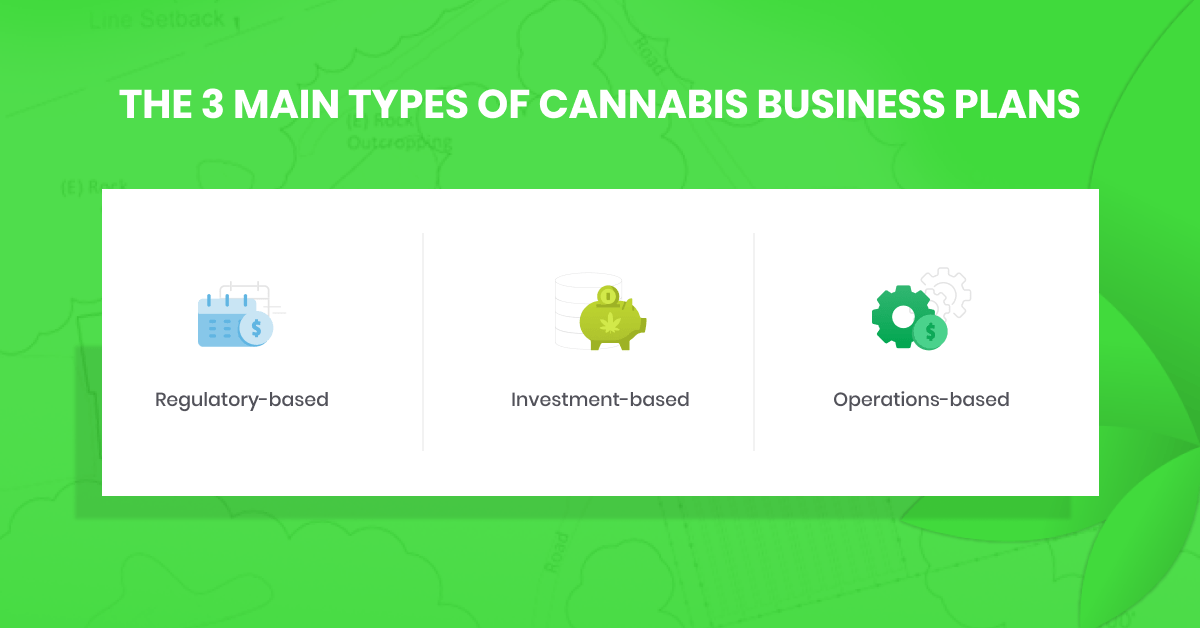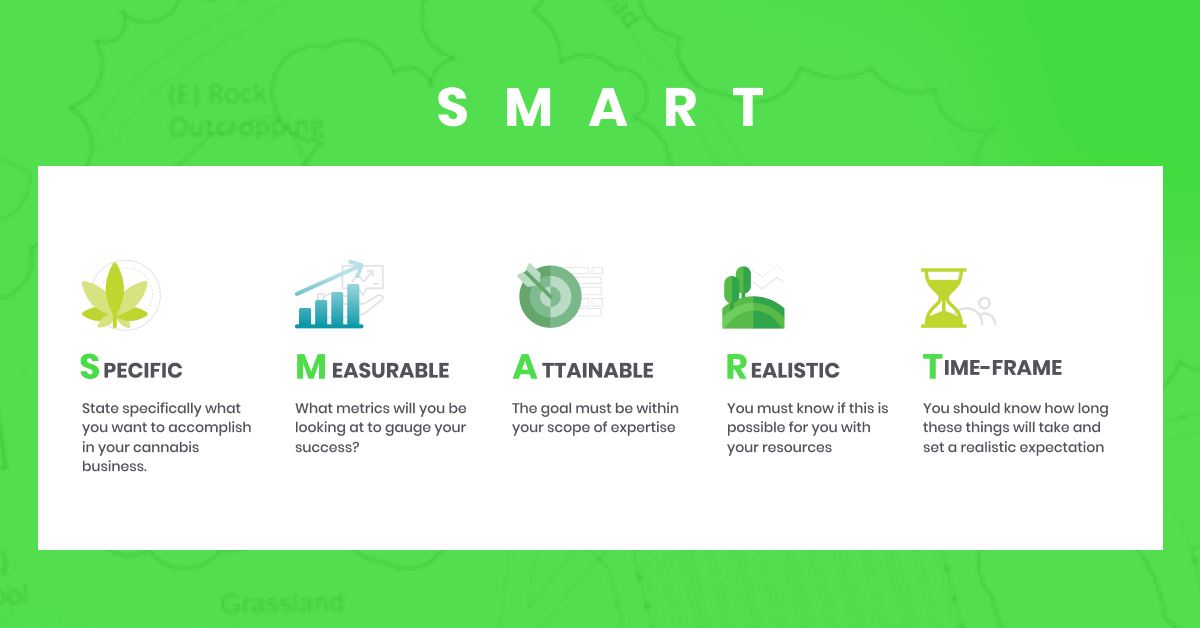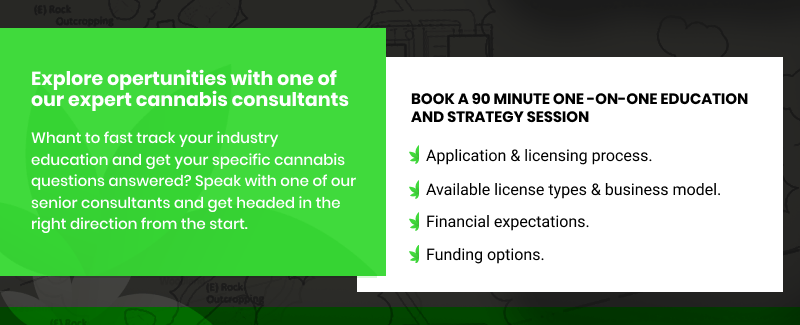Launching a new business can be extremely tedious regardless of the industry. But cannabis takes that complexity to a whole new level due to regulation, licensing, permitting, and an evolving competitive landscape from businesses rapidly entering the space. In the whirlwind of it all, it’s easy for things to slip through the cracks.
Unfortunately, those things that are slipping can have some serious consequences to the bottom line, brand reputation, and valuation come operation time.
If you are considering getting into the cannabis industry or have already begun taking steps, this article can help you avoid many of the pitfalls that have a major negative impact on new businesses once they go to market.
Let’s take a closer look at the five most common profit killing mistakes in cannabis business…
1. A BAD LOCATION
Do you have the right location for your business?
No matter which type of cannabis business you have (cultivation, retail, manufacturing, distribution or testing) it’s all about location, location, location.
With that said, different businesses call for different pieces of property.
Retailers thrive around large populations because of the increased demand. Pick a tiny rural town in the middle of nowhere for your storefront, and there’s a good chance you’ll struggle. For retailers, urban real estate is well worth the higher price tag.
On the flipside, manufacturing, distribution and cultivation businesses should avoid leasing expensive land in populated areas. Head to the countryside instead!
On a similar note, some buildings just aren’t suited for the task at hand. One of the most common oversights is to rush the building design process and be left with an inefficient facility that eats away at your bottom line. This may seem like common sense, but many cannabis businesses have come and gone due to bad location selection.
Even worse, the zoning of your property or neighborhood can stop your project dead in its tracks.
If your property isn’t zoned correctly or your building type isn’t of the right classification, it can put a nail in your coffin faster than you can say, “Out of business.”
The first major milestone of any cannabis business is acquiring your Conditional Use Permit (CUP), or land entitlement, but the local community can always put up a stink and try to block your approval.
Local ordinances are designed to protect residents from certain nuisances, like noise and odors that may bother them, and hours of operation can also make your business incompatible with the area.
Out of all the most common mistakes cannabis businesses make, choosing a bad location should be your biggest initial fear.
2. SUB-STANDARD BUSINESS PLAN
When it comes to cannabis, even experienced entrepreneurs can make critical errors from the outset with a poor marketing strategy, poor market analysis, and a bad business plan.
Your business plan acts as a checklist of the process to obtain licenses and pass inspections.
But be careful…what you put into your license when you request approval is what the government makes you adhere to, so don’t commit to anything that you can’t follow through on.
Your business plan also lays out the processes to manage your team and pitch to investors. Essentially, it’s a long-term game plan, so it better be good if you don’t want your project to flop.
There are three main types of cannabis business plans:
- Regulatory-based
- Investment-based
- Operations-based
Your regulatory-based business plan is what you turn into local and state licensing agencies. It keeps your ducks in a row with a long list of standard operating procedures (SOPs) and spells out how your project will adhere to government regulations. This section can be up to 10 pages long, and your project won’t even get off the ground if you don’t have it dialed in.
Failing to adhere to a minor ordinance can stall your project, and depending on your county, there can be a heap of ordinances to tiptoe around. Regulators also review for completeness, and missing just one tiny detail can get your application denied.
Your investment-based business plan is equally important. It breaks down marketing strategies, costs, revenue and profits, and provides a valuation for how much the business is worth.
Last but not least, your operations-based business plan is what you use internally to run your business. It’s essential to properly train your employees, but more on that later…
For now, let’s take a look at another profit killing mistake cannabis businesses make: poor regulatory alignment (aka bad licensing).
3. NOT GETTING THE RIGHT LICENSE AND FAILING TO FOLLOW SOPS
Knowing which licenses to apply for isn’t as straightforward as you might think.
If you have a business plan for a cannabis manufacturing company that will sell to other brands, you’ll need more than just a manufacturing license—you’ll also need a distributor license to actually sell to those brands. Without it, you’re a sitting duck.
In order to acquire the appropriate approval from the state, all of your SOPs will need to be in order. If not, you’ll have to come up with adjusted SOPs later and backtrack. This can easily mushroom into over half a million dollars in extra costs to modify the SOPs.
And remember, the details that go into the SOPs of your local permits and state licenses have a profound effect on how you can run your business. Whatever SOPs you agree to when you submit your applications, you’ll be forced to adhere to.
The solution?
Take the time to define your business goals in a detailed business framework before you pursue licenses.
Your business framework will help you find the right property and determine which licenses you need. Unfortunately, lots of new cannabis entrepreneurs get tripped up here.
For items like cannabis waste management, we highly recommend Eco Waster Services who have a tremendous amount of resources to help cannabis businesses with waste management but they also have a variety of compliance resources such as Compliance Checklists, and Management Plans among other things.
4. INSUFFICIENT OR IMPROPER EMPLOYEE TRAINING
Bad employee training can stick a knife in your cannabis business, and once again it all starts with SOPs.
Thorough SOPs not only help you stay on good terms with the government, but they also help you turn a profit through greater efficiency in your operations.
Lots of business owners aren’t even aware that their training procedures are audited by regulatory agencies, including your operational SOPs, which dictate how each type of employee has to carry out their job.
Do you have delivery drivers, growers, retail staff, or all of the above?
Your operational SOPs ensure that they all get trained appropriately and understand what’s expected of them every day. In a nutshell, it’s a manual to stay in compliance and run a profitable business.
Ultimately, failure to implement operational SOPs can lead to bad employee training, bad government relations, and piss-poor profit margins.
5. POOR CHOICE IN BUSINESS PARTNERS
When it all shakes out, poor planning attracts bad business partners and drives away the good ones.
With that said, oftentimes the worst business partners of all are family and friends.
The reality is, most family members aren’t cannabis business experts. Sure, your uncle Johnny is a professional weed smoker and a stand-up guy, but that doesn’t qualify him to help you manage a distribution business.
Pro tip:
In order to attract the best partners possible, start by defining your visions and goals, and make sure they’re SMART:
- Specific
- Measurable
- Attainable
- Realistic
- Time-bound
The amount of time it takes to start a cannabis business can be shocking, between tackling issues like property, marketing, and operations, so it’s important that potential partners have a clear idea of the challenging journey that lies ahead.
That’s why it’s important to create a detailed work plan—a master to-do list that covers everything from property selection to licensing and funding.
Ultimately, you and your future partners should have a solid understanding of how government regulations, property operations, and the myriad of other moving pieces mesh with your vision.
Eventually, your work plan will evolve into a more elaborate business plan that covers actionable steps like entity structure, legal compliance and other finer details.
A clear vision and detailed work plan screams loud and clear that your project isn’t for the faint of heart, and simultaneously attracts winning business partners.
YOUR NEXT STEPS
Want to set your cannabis business up for success?
These five common profit killing mistakes in cannabis business can easily be avoided. All it takes is the right team of consultants behind you.
Through our official discovery process, our experts will help you make more informed decisions and execute an effective plan with:
- Opportunity analysis
- Business assessment
- Property search and acquisition strategy
- Property suitability assessment
- License acquisition
- Operations, Compliance, & Training
- Marketing & Branding
At BeGreenLegal, we’ve helped hundreds of cannabis entrepreneurs build profitable businesses.
Ready to move forward? Let’s get started.








